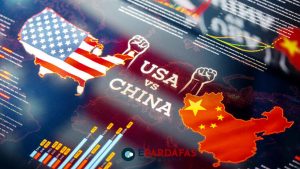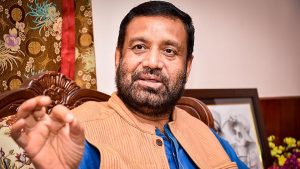
Eyes on America: The World’s Interest in the 2024 Election

Only two states have chosen which Republican they want to take on Democratic President Joe Biden but it’s almost certain to be Donald Trump. It’s an election campaign being watched not just in the US but around the world.
After recently spending a few weeks in Europe, the subject of America’s presidential election was a constant topic of intense curiosity and concern among the people I spoke to. And no wonder.
The US is currently involved in two hot wars, Ukraine and Gaza. Meanwhile, US-China relations have deteriorated and tensions in the Asia Pacific region have risen.
Closer to home, Central American nations are under the spotlight as a growing number of migrants are trying to get to the US through a border which seems more porous by the day. And this week there were US-led air strikes against Houthi rebels in Yemen.
There is almost no area of the world where American leadership doesn’t matter.
The prospect of Republican Donald Trump returning to office, with his America First foreign policy agenda, adds more uncertainty to an already tumultuous picture.
Some countries look forward to his return. But many of America’s allies are more fearful about the possible comeback of an unorthodox president they found hard to deal with the first time around.
Democratic Senator Chris Coons, who sits on the Foreign Relations Committee and is also co-chair of President Biden’s re-election campaign, told me that in every meeting he’s had with foreign leaders or foreign secretaries, at some point they raise the question of whether American voters could really turn once more to President Donald Trump.
So, while this may be a US election, other countries are deeply invested in the result.
In no capital in the world are they watching this campaign as closely as they are in Kyiv. The fate of the war arguably depends on the outcome.
“If the policy of the next president – whoever he is – will be different toward Ukraine, colder or more inward-oriented… then I think these signals will greatly affect the course of the war,” President Volodymr Zelensky said recently.
He didn’t name names but Mr Trump has said he would end the war “in 24 hours” of being elected, although he hasn’t explained how. The Ukrainians are concerned he would push for negotiations that wouldn’t favour their cause.
That would go down well in Russia, where the media has been particularly supportive of Trump, and some have criticised efforts to remove him from the ballot in 16 US states.
The Kremlin-controlled channel NTV was scathing. “This is real meddling in the election and the undermining of democracy by Americans themselves. No Russians or Chinese would even dream of this,” NTV correspondent Anton Ponomaryov told viewers, with no hint of irony.
The implications of a shift in US policy would be felt beyond Ukraine’s border and would particularly worry those European states that neighbour Russia.
Further afield, other American allies may decide the US is not a reliable security partner. One US senator raised the prospect of Japan developing its own nuclear arsenal if America stops helping Ukraine. Tokyo, he told me, could decide the American nuclear security umbrella simply has too many holes in it.
There’s also the prospect that a re-elected President Trump would act on his desire to pull America out of Nato, effectively crippling the military alliance. Two people with ties to the Trump campaign have told me he does plan to do just that.
Europeans, says Senator Coons, are right to be anxious.
“The US and its European allies have a significant common challenge. Together we have to show the world that Putin can’t outlast us and that [Chinese] President Xi’s vision of authoritarianism is not the best for the world.”












Comments